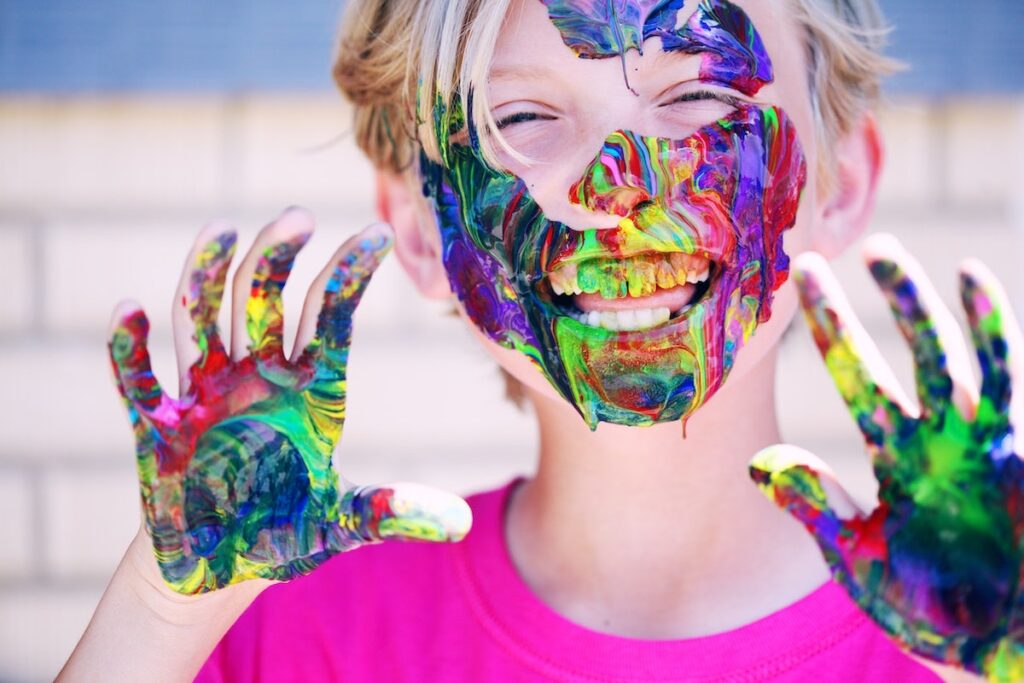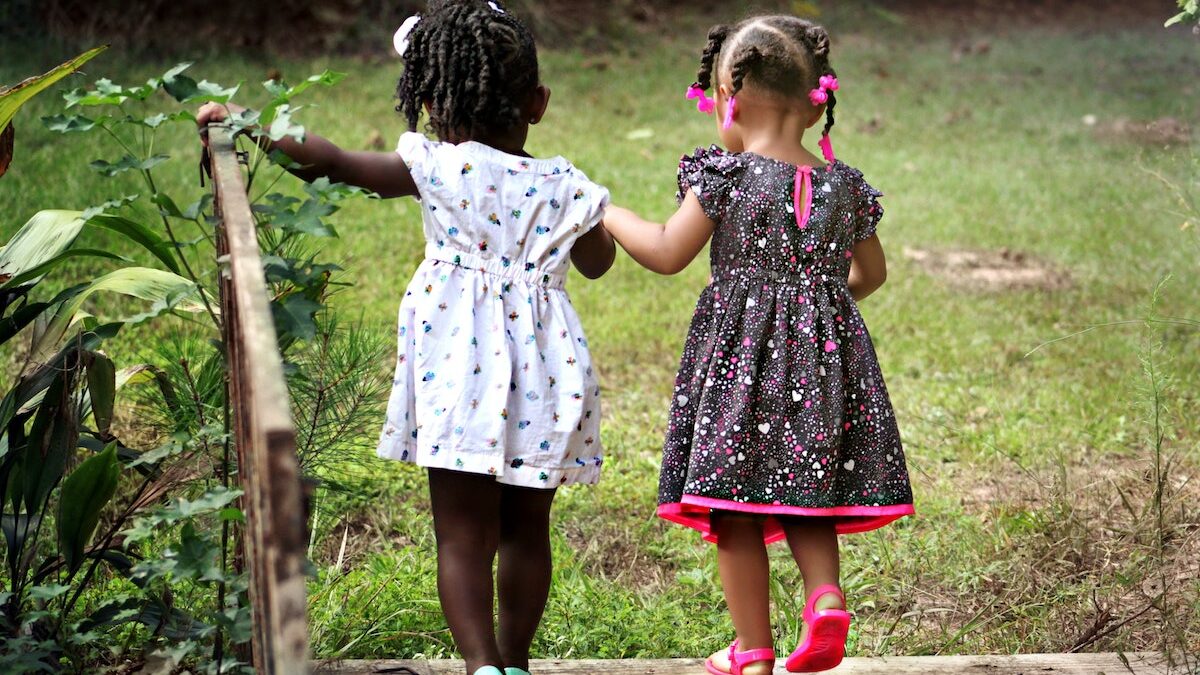5 tips to help develop social skills for children in your “COVID baby” that will enable them to build meaningful relationships.
Thanks to lockdowns, physical distancing guidelines and remote learning, the COVID-19 pandemic created a unique child development problem that’s being felt by parents right now.
Young children who were born just before or during the height of the pandemic spent the majority of their lives interacting only with their parents. While it helped create a positive bond, it also meant these children were not exposed to the day-to-day social situations that would have helped them develop the important skills for interacting with other people.
Even older children may have problems as they missed out on building basic social skills developed through playground conflicts and interacting with their friends.
In this article, we will explore ways to help children develop social skills in a post-COVID world. We will discuss the importance of emotional regulation, empathy and play in fostering a child’s social skills. We will also provide 5 tips for parents to help children build strong social relationships.
The 7 social skills for children to learn
Children need to be taught a number of important social skills adults often take for granted. “Children aren’t born with social skills and not all children develop them at the same rate or age, or with the same level of success,” said positive parenting program Triple P‘s international country director, Carol Markie-Dadds.
The valuable social skills children need to learn include:
- Making eye contact when speaking
- Reading body language and facial expressions
- Good manners
- Taking turns
- Respecting personal space
- How to be a good sport
- Understanding social rules
In the video below, psychologist Collett Smart shares strategies parents can take to help children to overcome losing in sports.
Handling different emotions
It is important for children to learn how to regulate their emotions in order to build strong social skills. Emotional regulation is the ability to recognise and manage emotions in a healthy way. Teach kids to name their emotions, validate how they feel and then help them learn to express their feelings appropriately.
“Research shows that when children develop the capacity to regulate their feelings and actions—stay calm under pressure—they are better able to cooperate with directions and get along with others,” Ms Markie-Dadds said.
Knowing how to handle their emotions isn’t just useful for a child’s social development, it also provides a wide range of other benefits.
“Our capacity to self-regulate is associated with lifelong outcomes including our physical and mental health, academic achievements, the quality of relationships we have with others, and our future employment and wealth,” Ms Markie-Dadds said.
Showing kindness and empathy
Children who learn to recognise and respond to the emotions of others will go on to experience more positive interactions with others. Teaching children compassion and empathy will not only show them how to be a good friend, but to choose better friends too.
When we teach children to be kind and respectful of others, we help them to better understand how to interact with those around them and to effectively communicate with people.
Most importantly, we can be good role models for our children. “Lead by example and show your child how to cope with emotions, as well as how to be kind and empathetic to others,” said Ms Markie-Dadds. “If you praise your child when you see them replaying your behaviours—you’re bound to see more of it.”
The power of play
Children learn many new skills through play. Create different situations where your child needs to interact with different people to help with their social skills development. These include activities such as playdates with friends, visits to family members and even being a part of a sports team.
Role play with them at home first, if you feel your child needs to gain some social competence before being placed in a real-world setting. Create different scenarios and have different conversations to teach them how to read social cues, learn how to share and even have a go at conflict resolution. This will allow your child to practise their communication skills in a safe environment.
5 top tips to develop social skills for children

When working on our child’s social skill development, keep in mind that some children are more introverted and shy. Let them know it’s OK to be shy, help them to feel safe and find the best way to deal in social situations. But while social interaction may be more difficult for them, it’s still important they learn basic social skills.
Triple P has five top tips for building children’s social skills:
1. Model and talk about the positive behaviours you’d like your child to use.
You’ll help children learn by example by greeting others warmly, thanking others for their help, talking respectfully or sharing a treat with a friend.
2. Encourage empathy
Do so by talking with your child about how our behaviour impacts how others feel; and what they can do to make others feel good. For example, praise them when invite another child to play.
3. Tune in to your child’s emotional state
Also, make sure you notice the early signs of “big emotions” before they escalate; help your child to use their words to express how they’re feeling and the issue at hand, by listening closely and naming the emotion they might be feeling. For example, “That looks really hard, you may be feeling frustrated.”
4. Play turn-taking games together
This will help your child learn about sharing, winning, and losing graciously, being patient, and getting along with others.
5. Narrate your own emotions honestly
Show your children how you cope with life’s ups and downs (I’m going for a walk after my hard day; I’m feeling frustrated so I’m going to take some deep breaths). Modelling how we regulate our emotions helps children understand how to appropriately express and cope with their own feelings.
“As your child gets older and puts these skills into practise, they’ll experience what we call an intrinsic reward—that warm inner glow, if you like—that comes from having shown things like kindness, empathy and generosity to others,” Ms Markie-Dadds said.
How helpful was this article?
Click on a star to rate it!
0 / 5. 0
Be the first to rate this post!
Melody Tan
Related posts
Subscribe
Receive personalised articles from experts and wellness inspiration weekly!


